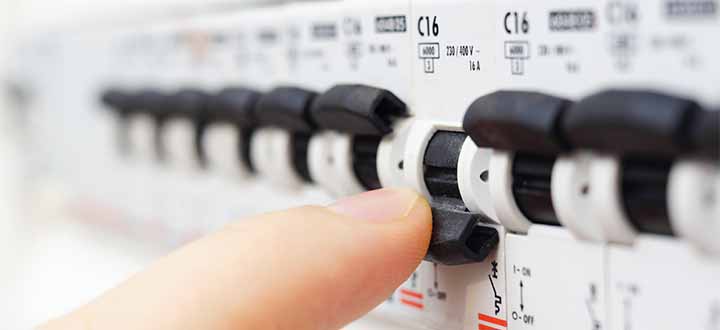Remote monitoring is a central element of many pump control systems. It makes it possible to centralize monitoring and, if necessary, control.
This is realized by measuring sensors on or in the system, whose values are combined. This opens up further interesting possibilities such as remote maintenance, remote control and remote alarming.

Remote maintenance
Remote maintenance is the administration of systems from remote locations for the purpose of maintenance. This principle has several advantages:
- Cost savings through short distances
- Staff savings and greater efficiency in the technical department
- Faster response times, therefore less risk of downtime
- Delegation of maintenance tasks is possible
- Remote maintenance can be carried out by specialists
In order to implement remote maintenance, the system must be equipped with appropriate sensors. Sensors are the “eyes” of the technicians. Consequently, people can only check the data that technology makes available to them. For this reason, when commissioning systems, it is important to carefully consider which sensors are useful for remote maintenance and remote control.

Long-distance effect
The remote effect generally describes the influence on a system from a distant location. This makes it possible, for example, to change parameters such as temperature, pressure, flow rate, etc. in a process. If sufficient data and controllers are available, complete systems can also be controlled centrally in this way. It is also possible to automate the remote control and thus reduce operating costs even further. Monitoring or web monitoring is closely related to the remote effect – the up-to-the-minute retrieval of sensor data, possibly including visualization.
Remote alerting
Remote alarming is part of remote monitoring. For this purpose, sensors determine specific measured values continuously or discontinuously. If a value exceeds a previously defined tolerance, the system automatically triggers an alarm. Depending on requirements, the alarm can have various consequences: an automatic response or forwarding to technical personnel.
In the area of pump control, for example, a remote alarm is important to prevent the pump from running dry. The technicians can then react accordingly as part of the remote control. Remote alarms must be distinguished from fully automated systems such as emergency shutdown, which can also be integrated into a pump.
Remote control
The remote control of systems describes the regulation and control of a system from outside. This requires extensive automation and monitoring of the system. Once this is established, there are several advantages: lower operating costs, minimized effort, short response times and access to external expertise if required.

